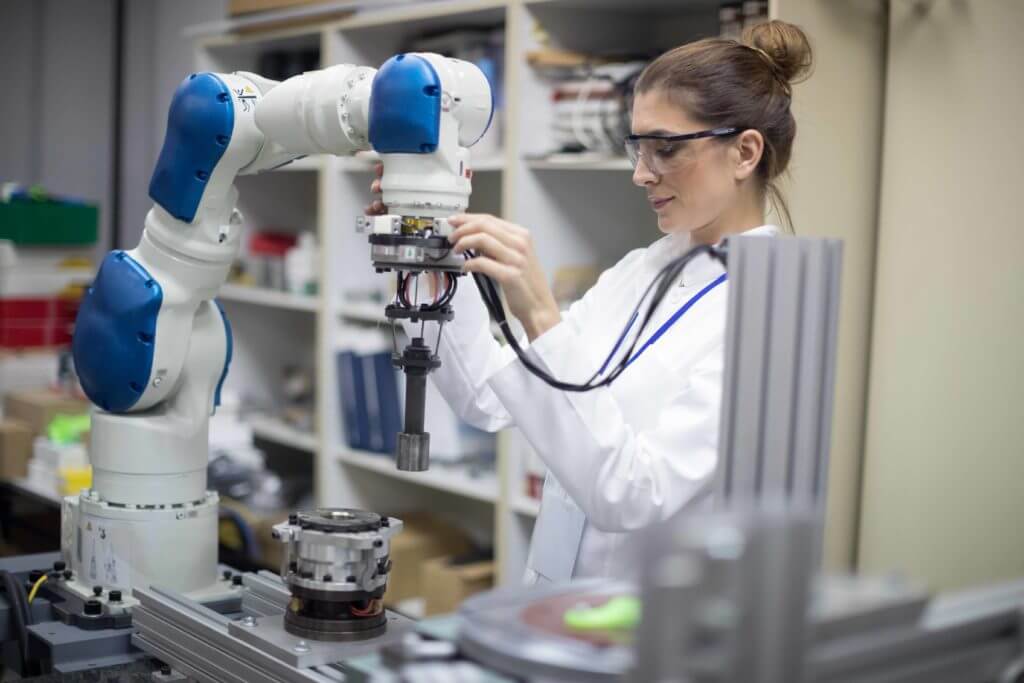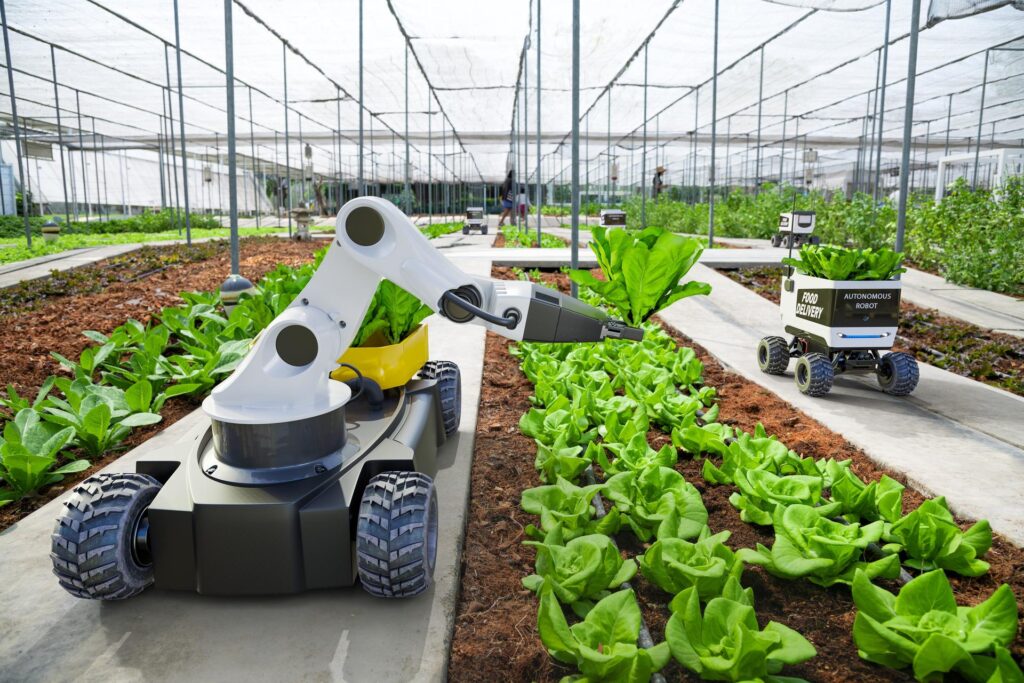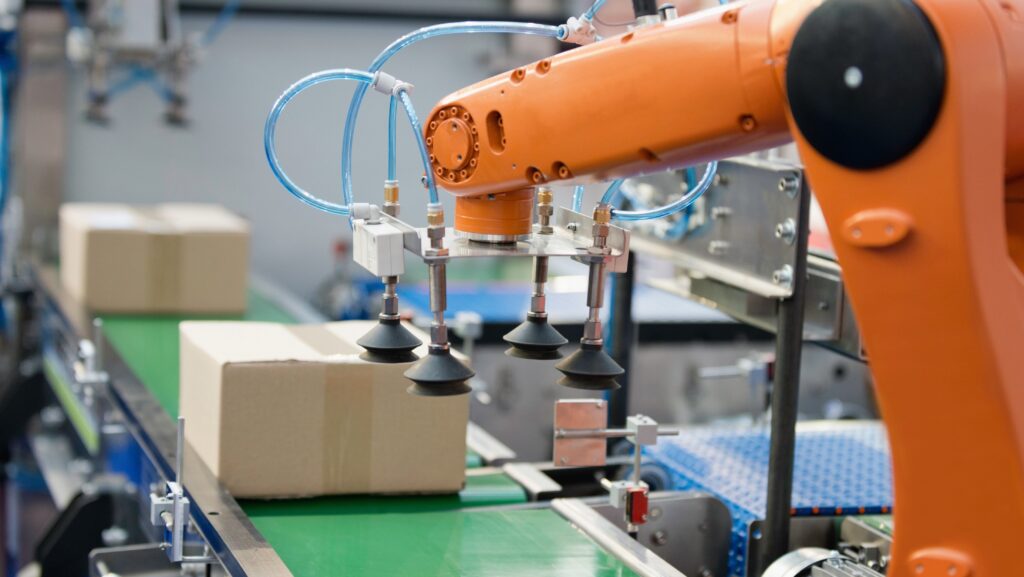The Dutch Robotics Ecosystem, a Launchpad to the European Market
With a strong high-tech industry and a thriving robotics community, the Netherlands is a breeding ground for next-generation robotics
About a decade ago, Industry 4.0 was the buzzword of the year, and fearful projections of jobs being lost to machines en masse spread across the world. Fast-forward to today, and businesses across industries are struggling with labor shortages, compelled to implement automation and robotization to relieve the workload on their workforce. Reshoring and international competition are further propelling market demand for robotics solutions in the Netherlands. With access to a top-tier supplier base of software, materials and components and an excellent network of (academic) innovation centers, robotics companies in the country are excellently positioned to produce pioneering robotics solutions fit for a leading position on the global market.
High tech supply chain to power robotics innovation
Home to highly advanced high-tech industry and a thriving robotics community of over 350 companies, the Netherlands is proactively stimulating innovation and growth for robotics applications in a number of industries. Overseen by the national program High Tech NL Robotics, various programs are available in the country, offering subsidized match-making between tech companies, industry problem owners, lab spaces and (academic) research institutes. Examples are Delft Robotics Institute, Robohouse, TU Eindhoven’s EAISI FAST Lab, Tilburg University’s AI for Robotics lab and Breda Robotics. As a testimony to their leading robotics research, the TU Eindhoven student team Tech United has won 1st place in the robocups competition for several years in a row. As a result, the robotics ecosystem in the Netherlands is growing fast, benefiting from the opportunities to pivot and create a solid sweet spot in the market fast.
The Dutch high-tech ecosystem is home to a number of sub-clusters with a strong international position, such as photonics, batteries and AI. These clusters can supply state of the art technology that advances the performance of robotics applications. The clusters are populated by a number of pioneering innovators, that power robots to meet and exceed industry demands. Examples range from ASML and NXP in the semiconductor industry, to E-Magy and LionVolt in innovative battery technology. More specific for the robotics sector are IMsystems, which makes revolutionary gearless, high precision transmission systems, Codian Robotics (part of ABB), which provides innovative robot mechanics, and Fizyr, which offers award-winning deep-learning vision software. These local companies are accompanied in the Dutch robotics ecosystem by international entrants such as ABB, Asensus, Inaho and Locus.
Facilitated market entry for robotics solutions
Virtually every industry in the Netherlands is exploring opportunities for automation. Robotics and automation can relieve heavy or repetitive tasks and spur productivity and business growth, but solutions need tailoring to each specific context. Various innovation programs are established to ease in market entry for robotics solutions in the areas in which they add most value, and where the Dutch business ecosystem has a leading position. These sectors are Agrifood, Medical technology and Logistics.
Robotics for agriculture and horticulture
The Netherlands is home to the world’s most sophisticated and tech-powered agrifood community and is the world’s 2nd largest exporter of agrifood. Manual work in the sector is hard, repetitive and seasonal, and companies are struggling to find skilled workers to sustain and grow their business. In addition, the sector is transforming towards more sustainable operations. To achieve this, it needs to reduce the use of pesticides and chemical fertilizers and increase crop diversity to avoid soil depletion. These developments put high demands on the sector, and automation and robotics are vital to enable the sector to retain their competitive advantage. As a result, robotics for agri and horticulture is one of 6 subjects of the NXTGEN HIGHTECH project, which has been awarded €450 million from the Dutch Growth Fund.
In parallel, public-private programs such as RoboCrops, Agrobots and agROBOfood provide services such as match-making between agrifood problem owners and high tech and robotics companies, free consultancy, workshops and hands-on tools to agrifood companies that want to start or advance automatization of their operations. The TU Delft AgTech institute has partnered with four other universities in the Netherlands, RoboHouse, a number of growers and tech companies to advance the development of agriculture robots and create technologies that enable sustainable, hands-free food chains.
Robotics for health and care
The Netherlands is the fourth most active patent applicant for medical technology in the world and the largest importer and exporter of MedTech. The country is investing in medical technology to increase quality, accessibility and affordability of its already top-class health system. Robotic applications are a key area in which the Netherlands is a pioneer.
The largest innovation centers for medical technology are TU Eindhoven’s MedTech Innovation Center, Twente University’s MedTech Twente, and Convergence, a TU Delft and Erasmus University Medical Center collaboration. Complementing these academic institutions is Holst Centre, a research center located on the High Tech Campus Eindhoven. In these initiatives, multidisciplinary collaboration between high tech companies, academic researchers and healthcare institutions are facilitated to develop innovations for the healthcare of the future. Medical robot companies such as Microsure, Vitestro, Machnet Robotics, Rollz International and Demcon develop medtech innovations, work together and grow their business as part of this ecosystem.
Logistic robotics
Thanks to its strong commitment to its logistics infrastructure, the Netherlands ranks in the top five on the World Bank Logistics Performance. To maintain this position, the country is investing in automation through digitalization and robotization and is intensifying collaboration between chain partners. Robotics innovation is focused within collaborative robotics, last-mile delivery, supply chain tracking and warehouse automation.
TNO focuses on seeking innovative solutions in the Logistics sector. Sharehouselab is a living lab for innovative warehouse automation robots are tested and validated to accelerate time to market.
The logistic robotics market in the Netherlands is dominated by large international players, but there is also a significant presence of local SMEs and a growing number of local startups. Some international entrants include Addverb, Berkshire Grey, Locus Robotics and Mujin. Lowpad, Kumatech, Movexx and Intellistore are a few of the suppliers of warehouse automation from the Netherlands.
Join the Dutch robotics ecosystem
This growing ecosystem welcomes new international entrants with unique technology and knowledge, to join and grow their business in the Netherlands and across the European market. With Germany, France and the UK at a just a few hours away, the Netherlands is the ideal launchpad to European success for robotics companies. The Netherlands Foreign Investment Agency and its regional partners in the Invest in Holland network connect international companies to these local ecosystems, and help them establish their company in the Netherlands. Get in touch and let’s start exploring opportunities for your business in the Netherlands!
29 April 2024

